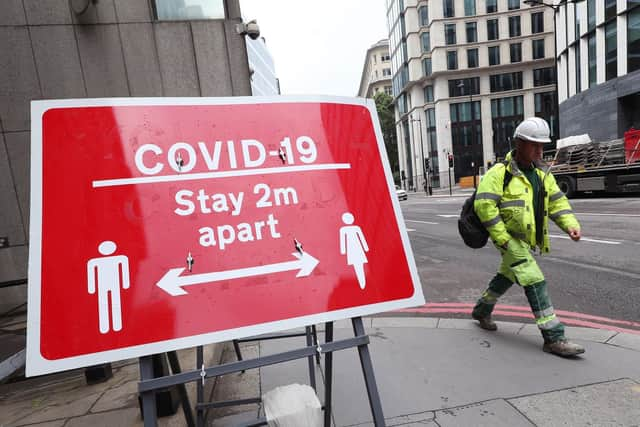Coronavirus mortality rates in Yorkshire not falling as fast as rest of the country
Deaths from the virus have more than halved in all but two regions between April and May, but Office for National Statistics figures showed the North East and Yorkshire continued to have high rates.
The greatest decrease was in London, where the mortality rate fell by 83.3 per cent.
Advertisement
Hide AdAdvertisement
Hide AdAccounting for population structure, there were 81.9 deaths involving Covid-19 per 100,000 people in England and 67.6 per 100,000 in Wales between March 1 and May 31.


The North East, North West and Yorkshire and the Humber had the highest mortality rates in May, as London coronavirus deaths dropped.
The figures are based on all deaths that occurred in March, April and May 2020 where Covid-19 was mentioned on the death certificate, and which had been registered by June 6.
The ONS said as more deaths are registered the mortality rate is likely to increase, especially in May.
Advertisement
Hide AdAdvertisement
Hide AdFriday’s figures show that people living in the most deprived areas of England continue to experience coronavirus mortality rates more than double those living in the least deprived areas.
There were 128.3 deaths per 100,000 people in the most deprived areas – 118 per cent higher than the 58.8 deaths per 100,000 in the least deprived parts of the country.
This is greater than the difference in the mortality rate for all deaths, which is 92.2 per cent higher than in the least deprived areas.
Dave Innes, head of economics at the Joseph Rowntree Foundation, said: “Before the pandemic hit, there were signs that our record on tackling poverty and health inequalities was unravelling. Covid-19 has laid bare just how stark those inequalities are.
Advertisement
Hide AdAdvertisement
Hide Ad“It is completely unacceptable that someone’s life chances are so profoundly affected by where they live. Today’s statistics must act as a wake-up call – as a society with a strong sense of decency and compassion, we can and must do better.”